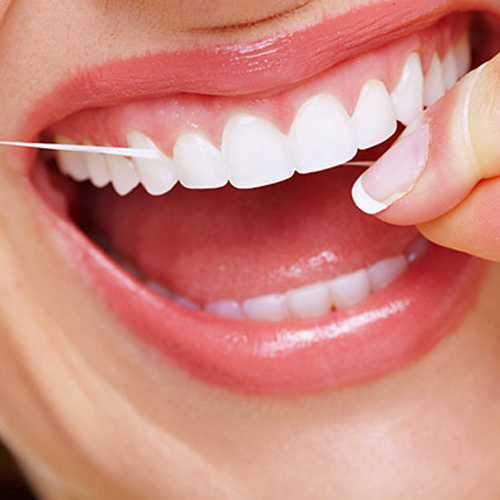Oral hygiene is the practice of keeping your mouth, teeth, and gums clean and healthy to prevent dental problems such as cavities, gum disease, and bad breath. Good oral hygiene is crucial for maintaining overall health and well-being. This guide will cover the essential aspects of oral hygiene, including daily practices, proper techniques, and the benefits of maintaining a clean mouth.
The Importance of Oral Hygiene
- Prevents Tooth Decay: Regular brushing and flossing remove plaque, the leading cause of cavities.
- Reduces Gum Disease: Proper oral care helps prevent gingivitis and periodontitis, which can lead to tooth loss.
- Prevents Bad Breath: Good oral hygiene keeps your mouth fresh and free from odors.
- Improves Overall Health: Poor oral health is linked to various systemic conditions, such as heart disease and diabetes.
- Enhances Appearance: Clean, white teeth and healthy gums contribute to a beautiful smile.
Daily Oral Hygiene Practices
-
Brushing
- Frequency: Brush at least twice a day, preferably after meals and before bedtime.
- Technique: Use a soft-bristled toothbrush and fluoride toothpaste. Brush for at least two minutes, covering all surfaces of your teeth.
- Method: Hold the toothbrush at a 45-degree angle to the gums, use gentle circular motions, and brush the outer, inner, and chewing surfaces of each tooth. Don’t forget to brush your tongue to remove bacteria and freshen breath.
-
Flossing
- Frequency: Floss at least once a day to remove plaque and food particles between teeth.
- Technique: Use about 18 inches of floss, winding most of it around your middle fingers and leaving a few inches to work with. Gently slide the floss between teeth, curving it into a C-shape around each tooth and moving it up and down.
- Types: Choose from waxed, unwaxed, flavored, or dental tape based on your preference and comfort.
-
Mouthwash
- Use: Rinse with an antibacterial mouthwash once or twice a day to reduce plaque and gingivitis, freshen breath, and provide additional fluoride.
- Technique: Swish the mouthwash around your mouth for about 30 seconds, ensuring it reaches all areas before spitting it out.
-
Diet and Hydration
- Limit Sugary Foods and Drinks: Sugar promotes the growth of plaque bacteria that cause cavities.
- Eat a Balanced Diet: Include fruits, vegetables, lean proteins, and dairy products to provide essential nutrients for oral health.
- Stay Hydrated: Drink plenty of water to wash away food particles and bacteria, and to keep your mouth moist.
Advanced Oral Hygiene Techniques
-
Interdental Brushes
- Use: Small brushes designed to clean between teeth and around braces or bridges.
- Technique: Gently insert the brush between teeth and move it back and forth to remove plaque and food particles.
-
Oral Irrigators (Water Flossers)
- Use: Devices that use a stream of water to clean between teeth and below the gum line.
- Technique: Direct the water jet between teeth and along the gumline to dislodge plaque and debris.
-
Tongue Scrapers
- Use: Tools designed to clean the surface of the tongue.
- Technique: Gently scrape from the back of the tongue to the front to remove bacteria and food particles.
Regular Dental Visits
- Frequency: Schedule dental check-ups every six months for professional cleanings and exams.
- Examinations: Dentists check for cavities, gum disease, oral cancer, and other dental issues.
- Professional Cleaning: Dental hygienists remove tartar buildup, polish teeth, and provide fluoride treatments to strengthen enamel.
Benefits of Good Oral Hygiene
- Healthy Teeth and Gums: Prevents cavities, gum disease, and tooth loss.
- Fresh Breath: Reduces bad breath caused by bacteria and food particles.
- Bright Smile: Prevents staining and discoloration, keeping teeth white and shiny.
- Improved Overall Health: Reduces the risk of systemic health issues linked to poor oral hygiene.
- Cost Savings: Preventative care reduces the need for expensive dental treatments.
Tips for Maintaining Good Oral Hygiene
- Replace Toothbrush Regularly: Every three to four months, or sooner if the bristles are frayed.
- Use Fluoride Toothpaste: Fluoride strengthens tooth enamel and prevents cavities.
- Chew Sugar-Free Gum: Stimulates saliva production, which helps neutralize acids and clean teeth.
- Avoid Tobacco Products: Smoking and chewing tobacco can cause gum disease, tooth decay, and oral cancer.
- Manage Stress: High stress can lead to teeth grinding and poor oral hygiene habits.


